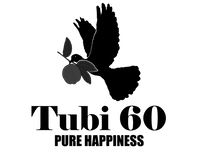History and origin
Tubi 60 was developed in 2012 by two brothers: Hilal and Yanai Tubi in Haifa, Israel. [2] [4]
In 2013 the first distillery was opened in Haifa and obtained necessary approvals, licenses, and legal documents from the Israeli Health Ministry to produce Tubi 60. The liquor is also approved by the TTB. [1] [2] [5]
Increased demand throughout the following year led to the founding of a larger distillery in 2015 by the two brothers. [3] In 2017, the Tubi company started exporting the liquor to the US, Hungary, Norway, Germany and other countries. [1]
This page is based on this
Wikipedia article Text is available under the
CC BY-SA 4.0 license; additional terms may apply.
Images, videos and audio are available under their respective licenses.
